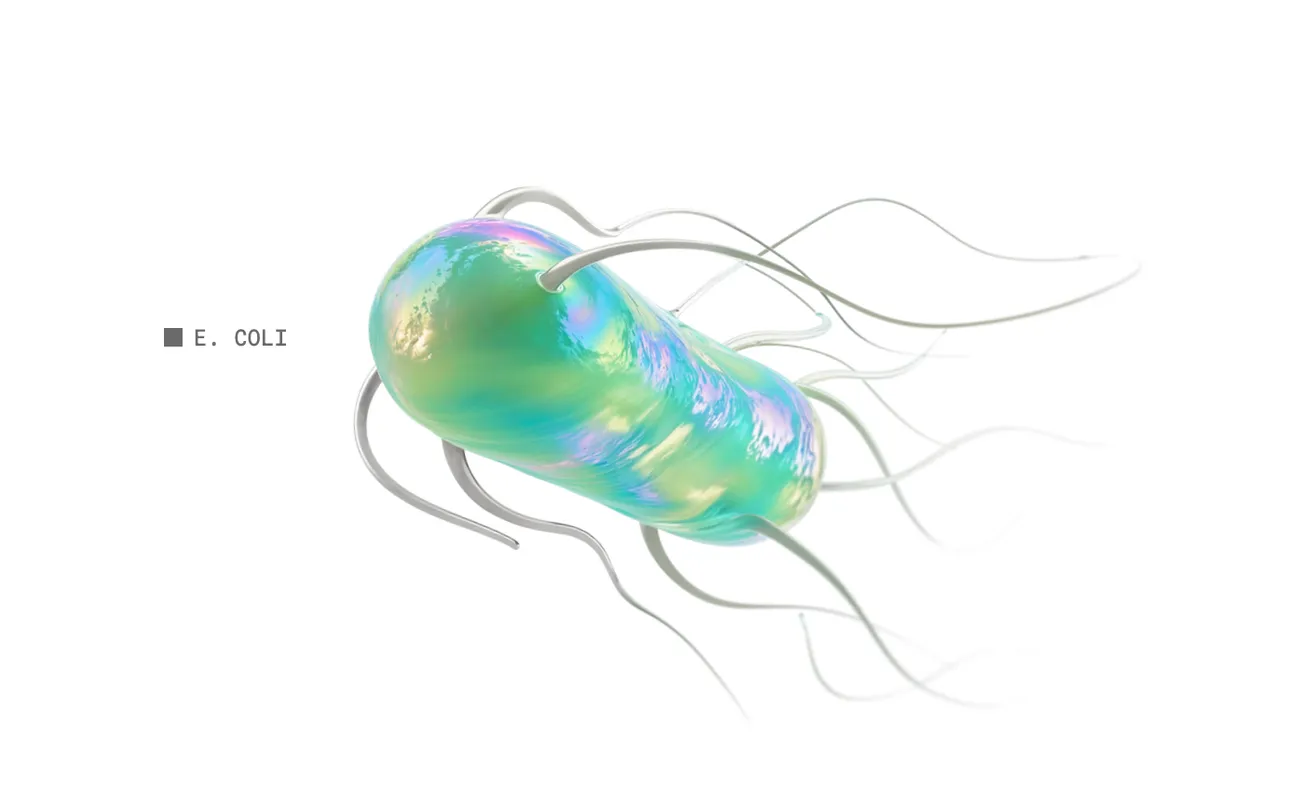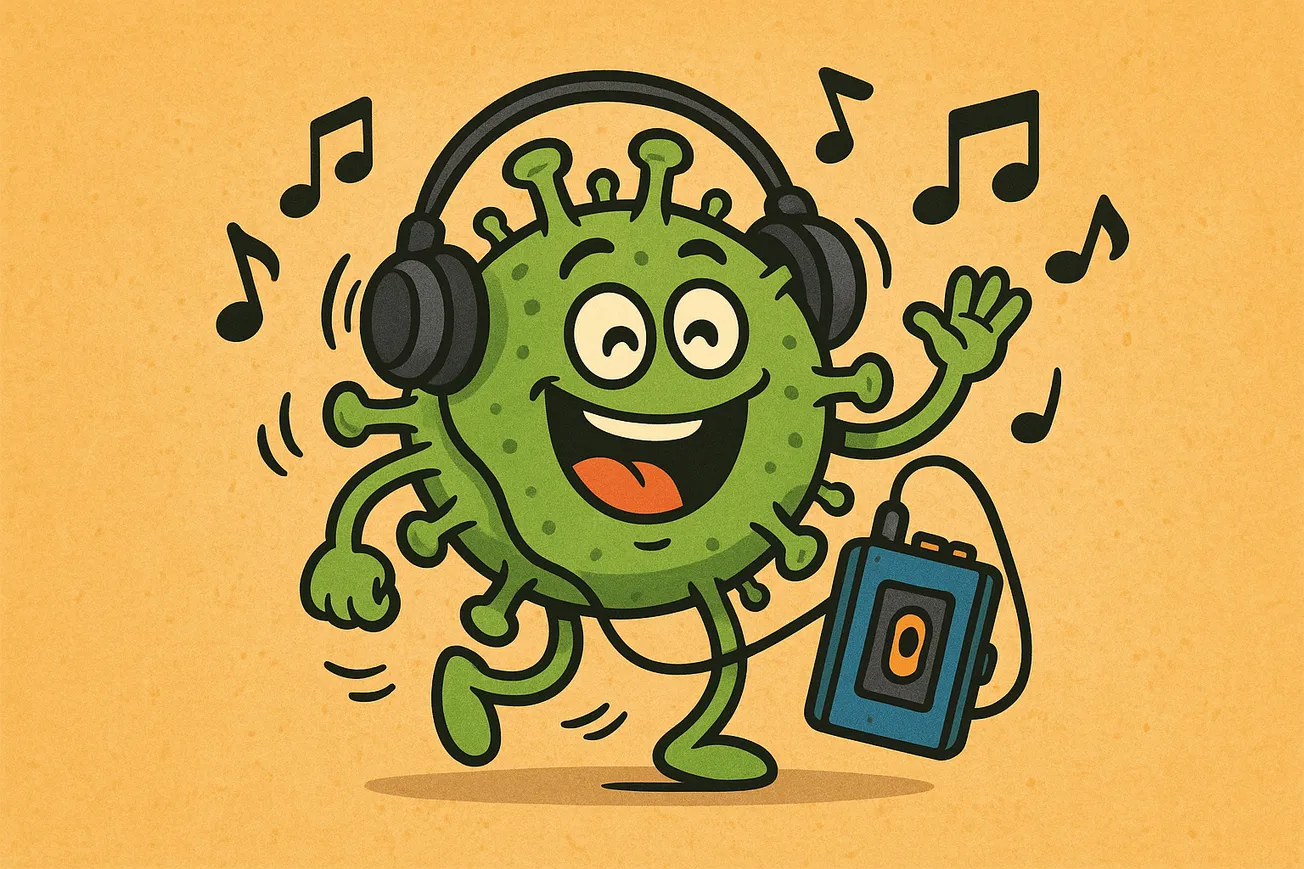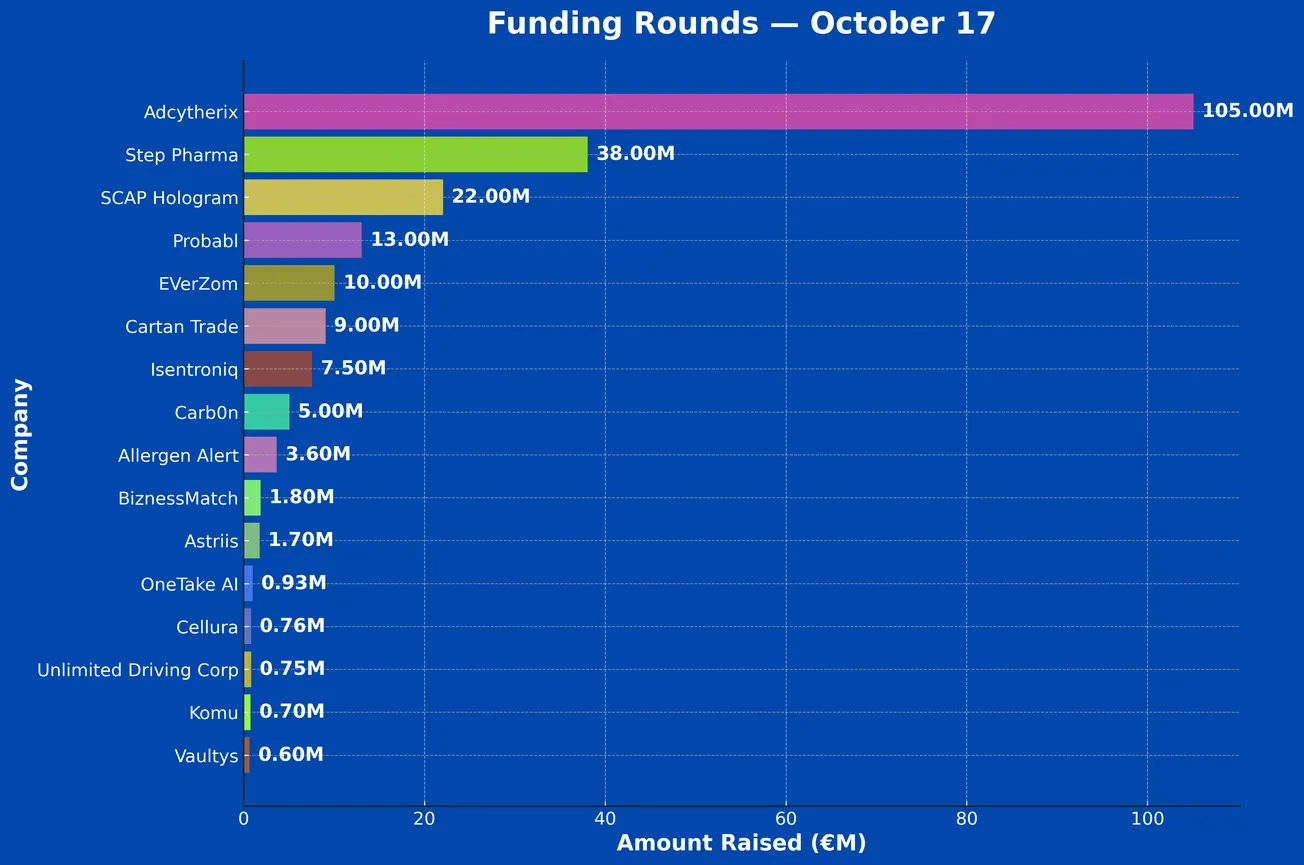Founded in 2021 by technophile-entrepreneur Alexandros Pantalis and microbiologist Dr Adèle James, Phagos is on a mission to put an end to bacterial disease using nature’s original predator of bacteria: bacteriophages.
Their vision is to replace static antibiotics with “evolving drugs” built on AI and phage biology.
The company’s first application is in animal health, a sector heavily impacted by bacterial infections and antibiotic resistance.
Today, Phagos employs around 50 people, 90 % of whom specialize in microbiology, computer science, data, AI, and R&D. With a recently raised €25 million Series A, Phagos is ready to scale its veterinary solutions, with a horizon that extends to human health.
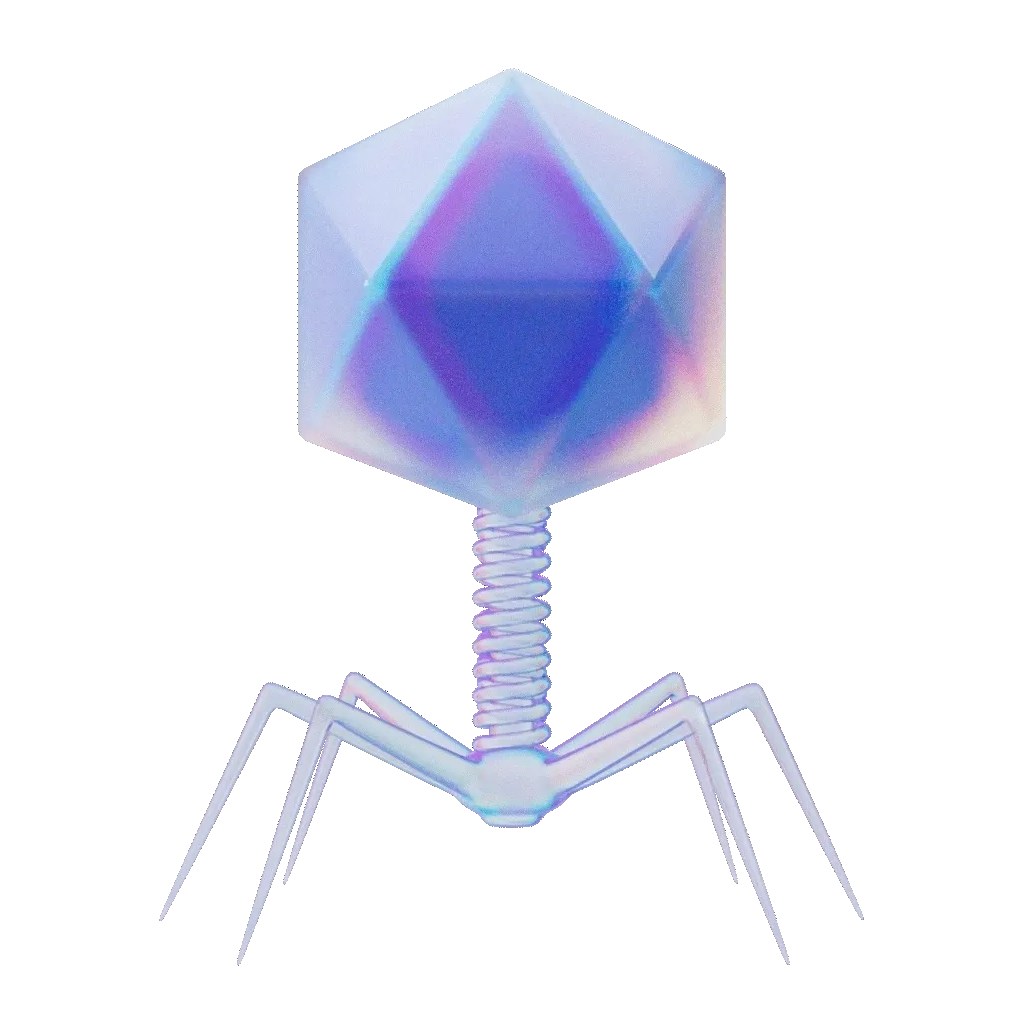
Antibiotics Hitting The Wall
Bacterial infections remain a leading global killer. As noted in a 2022 Lancet report, they ranked second in human mortality in 2019. Add in the 2025 estimate from the World Organization for Animal Health: antimicrobial-resistance (AMR) is poised to create tens of billions of dollars in losses, threaten food security for 2 billion people, and leave many animal infections untreated.
“No new antibiotic group has been put on the market for 40 years now,” said Pantalis. “It’s normal: if you keep using the same thing to fight bacteria, there will be resistance. We need drugs that evolve, too.”
James and Pantalis realized phages could be exactly that: nature’s virus-hunters of bacteria, tailor-made for the evolving enemy.

Phages: Nature’s Bacteria Killers
French microbiologist Félix d’Hérelle (1873- 1949) coined the term “bacteriophage,” meaning “bacteria eater,” circa 100 years ago.
Bacteriophages – or “phages” – are nature’s precision weapons against bacteria. These tiny viruses are everywhere: in soil, oceans, even within our own microbiome. Each one is a specialist, designed to infect and destroy only a specific bacterial host. Once attached, the phage hijacks the bacterium’s machinery to replicate, bursting it open from the inside.
In an age of growing antibiotic resistance, their precision is their power. Phages can wipe out resistant bacteria while leaving human cells completely untouched.
“There are countless phages, and each has a precise role to play,” said Pantalis. "Our job is to find the right phage and match it with the right bacteria.”
Until recently, that matching was slow, labor-intensive, and difficult to scale.
“This is not a new science,” Pantalis noted. “We’ve known about phages for over 100 years. But as a science that requires precision. It was impossible to industrialize until now.”
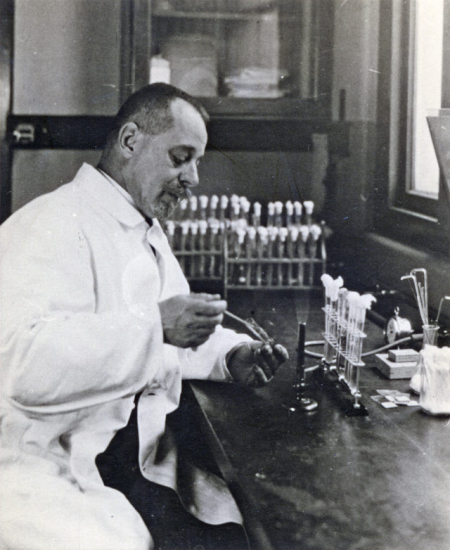
Building the “Meetic” of Bacteria and Phage Matching

Pantalis and James began by setting out to test their phage approach in the field. Their destination was an oyster farm in France's Loire Atlantic region where the breeder’s precious stock was being decimated by a mysterious bacterial infection.
None of the antibiotics on hand had worked. “France is the world’s second-largest oyster producer after China, so economically it was a big deal,” recalled Pantalis.
Over a few days, the duo collected samples from the water and the oysters, brought them back to the lab, and identified a phage capable of targeting the culprit bacteria. When they applied it, oyster mortality dropped by 40%. The entire experiment cost just €2,000, but it was enough to convince them they were onto something big.

From Oysters To Farms
From oysters to shrimp and then chicken farms, James and Pantalis began collecting bacterial and phage samples, building a real-world library with the help of their proprietary AI platform, Alphagos.
“We built an AI-driven platform, Alphagos, to avoid manually testing millions of petri dishes,” explained Pantalis. “Our solution is not scalable without it. Our AI reads bacterial DNA and predicts which phage from our bank of over 1,000 phages and growing will work best.”
Phagos employs a B2B model, partnering directly with livestock farms, aggregators and vets to deliver customized phage treatments. Their process combines microbiology, AI, and field expertise. Partner farms send bacterial samples to the lab, where researchers screen their phage library, or source new ones from the environment.
DNA sequencing and deep learning algorithms then predict the most effective combinations, which are tested in vitro and in vivo before deployment. Finally, field technicians deliver the customized treatments directly to farms, ensuring seamless administration and monitoring.
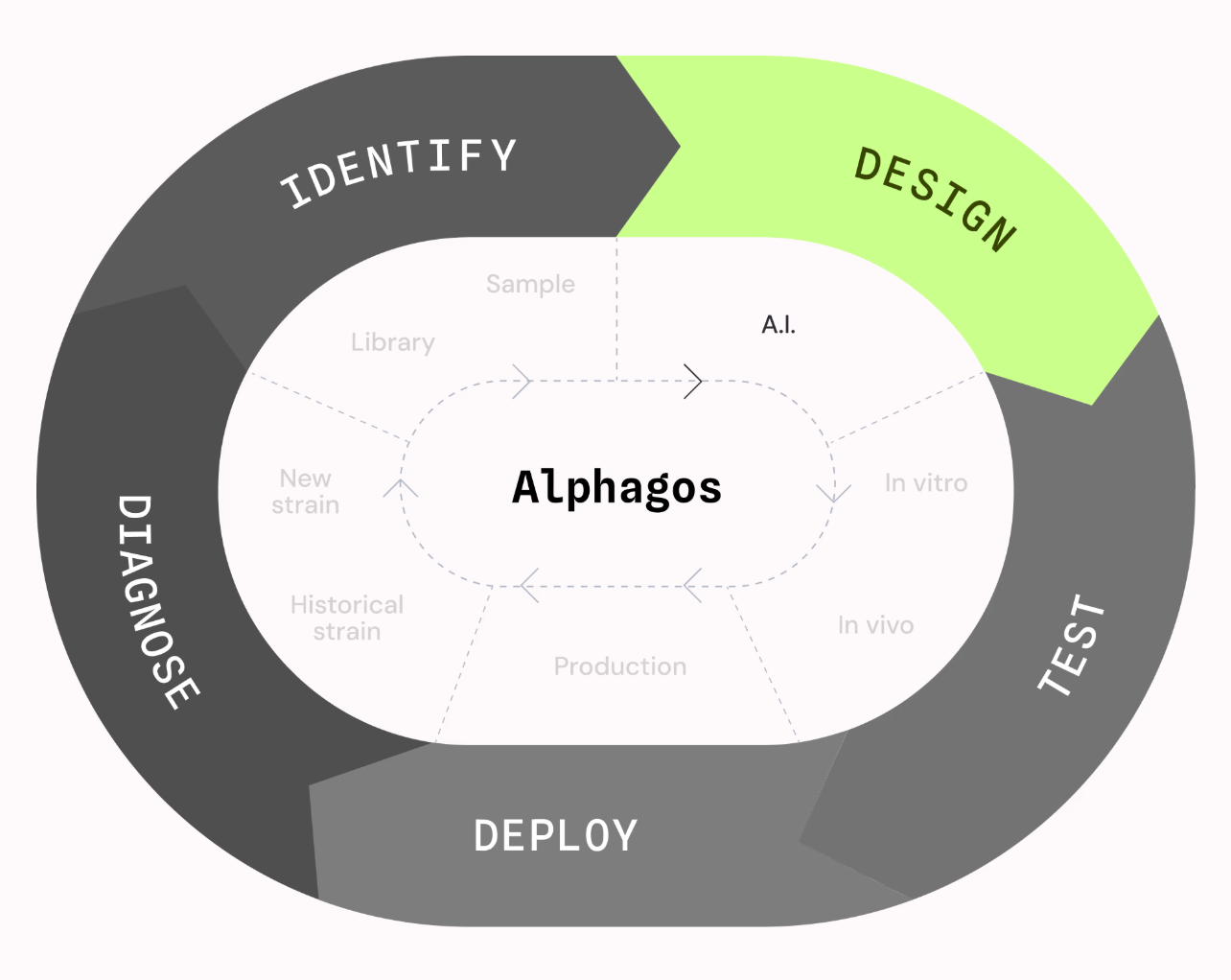
The company is currently collaborating with several major poultry producers in France to combat pathogens such as E. coli, Enterococci and Salmonella . To date, Phagos has run 11 field trials and treated over 300,000 animals in France with its phage technology.
Phagos is currently using its technology to prevent livestock disease and reduce antibiotic resistance, but it can also be used to transform sectors from plant disease in agriculture to food safety, medicine, and environmental protection.
Regulatory Green Light
Phagos’s Series A round of €25 million, announced in October 2025, was co-led by CapAgro, Hoxton Ventures, CapHorn, and Demeter IM, with participation from Acurio Ventures, Citizen-Capital, Entrepreneur First, Founders Capital, and Station F. The funding will go towards growing their team, developing the next-generation AI platform for phage discovery, and fueling the company’s expansion across Europe, Asia & the Americas
Earlier this year, Phagos also received authorization from the French National Agency for Veterinary Medicines to market its solutions in France as personalized veterinary medicines, a milestone that officially validates the company’s patented platform and marks a turning point in the fight against bacterial infections.
In the long term, Phagos aims to apply its phage therapy solutions to human health as well.

Phage Therapy: The Race Is On
The phage-therapy field is growing fast. Roughly 150 companies globally are working on phages. Around 20 of those focus on animal health, a market estimated to be worth over $67 billion. Pantalis claims Phagos is one of three well-capitalized, “serious” players in that niche.
Many providers rely on generic phage cocktails that mix multiple phages into a single treatment in a kind of “spray-and-pray” approach that risks driving resistance. Phagos takes a different path via evolving, precision phage medicine.
“The spray-and-pray method is a bad idea,” said Pantalis. “You’ll only end up creating phage resistance. We focus on constantly finding the next effective phage - and there’s always one.”
Rewriting the Rules of Antibiotic Resistance

As the world runs out of effective antibiotics, industries from aquaculture to poultry and cattle are scrambling for sustainable alternatives. By deploying phage therapy in animals today, and by powering it with an expanding AI-driven data engine, Phagos is laying the groundwork for the next leap: human health, crop protection, and environmental applications.
That mission is already moving fast.
In the near term, Phagos plans to scale across agriculture and aquaculture while expanding internationally. By 2030, it aims to enter human health, leveraging its veterinary track record to combat resistant infections in hospitals.
With its dual tech-bio model of AI meets phages, Phagos will offer what Pantalis calls “drugs that evolve as bacteria evolve.”
The challenge now is execution: proving efficacy in the field, capturing market share, and cementing credibility across sectors. If it succeeds, Phagos could become the biotech that finally rewrites the antibiotic rulebook.
“Our mission,” said Pantalis, “is to put an end to bacterial disease.”

